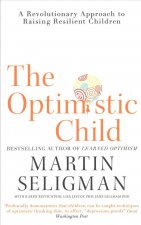
Kód: 04535918
Origins of Morality
Autor Dennis L. Krebs
Why do people behave in moral ways in some circumstances, but not in others? In order to account fully for morality, Dennis Krebs departs from traditional approaches to morality that suggest that children acquire morals through so ... celý popis
- Jazyk:
 Angličtina
Angličtina - Vazba: Pevná
- Počet stran: 320
Nakladatelství: Oxford University Press Inc, 2011
- Více informací o knize

Mohlo by se vám také líbit
-

Empire in Question
880 Kč -

Chicken Soup for the Fisherman's Soul
360 Kč -

Powers
1836 Kč
Dárkový poukaz: Radost zaručena
- Darujte poukaz v libovolné hodnotě a my se postaráme o zbytek.
- Poukaz se vztahuje na celou naši nabídku.
- Elektronický poukaz vytisknete z e-mailu a můžete ihned darovat.
- Platnost poukazu je 12 měsíců od data vystavení.
Více informací o knize Origins of Morality
Nákupem získáte 279 bodů
 Anotace knihy
Anotace knihy
Why do people behave in moral ways in some circumstances, but not in others? In order to account fully for morality, Dennis Krebs departs from traditional approaches to morality that suggest that children acquire morals through socialization, cultural indoctrination, and moral reasoning. He suggests that such approaches can be subsumed, refined, and revised gainfully within an evolutionary framework. Relying on evolutionary theory, Krebs offers an account of how notions of morality originated in the human species. He updates Darwin's early ideas about how dispositions to obey authority, to control antisocial urges, and to behave in altruistic and cooperative ways originated and evolved, then goes on to update Darwin's account of how humans acquired a moral sense. Krebs explains why the theory of evolution does not dictate that all animals are selfish and immoral by nature. On the contrary, he argues that moral behaviors and moral judgments evolved to serve certain functions. Krebs examines theory and research on the evolution of primitive forms of prosocial conduct displayed by humans and other animals, then discusses the evolution of uniquely human prosocial behaviors. He describes how a sense of morality originated during the course of human evolution through strategic social interactions among members of small groups, and how it was expanded and refined in modern societies, explaining how this sense gives rise to culturally universal and culturally relative moral norms. Krebs argues that although humans' unique cognitive abilities endow them with the capacity to engage in sophisticated forms of moral reasoning, people rarely live up their potential in their everyday lives. Four conceptions of what it means to be a moral person are identified, with the conclusion that people are naturally inclined to meet the standards of each conception under certain conditions. The key to making the world a more moral place lies in creating environments in which good guys finish first and cheaters fail to prosper.
 Parametry knihy
Parametry knihy
Zařazení knihy Knihy v angličtině Society & social sciences Psychology Child & developmental psychology
2787 Kč
- Plný název: Origins of Morality
- Podnázev: An Evolutionary Account
- Autor: Dennis L. Krebs
- Jazyk:
 Angličtina
Angličtina - Vazba: Pevná
- Počet stran: 320
- EAN: 9780199778232
- ISBN: 019977823X
- ID: 04535918
- Nakladatelství: Oxford University Press Inc
- Hmotnost: 590 g
- Rozměry: 240 × 162 × 26 mm
- Datum vydání: 08. September 2011
Oblíbené z jiného soudku
-

Integrating Play Therapy and Emdr with Children
410 Kč -

Range
239 Kč -

Conscious Parent
433 Kč -

Child with Special Needs
437 Kč -

Seeds for Social Renewal
437 Kč -

Highly Sensitive Child
383 Kč -

Playing and Reality
613 Kč -

Optimistic Child
433 Kč -

End of Average
283 Kč -

Rutter's Child and Adolescent Psychiatry 6e
3585 Kč -

Making and Breaking of Affectional Bonds
667 Kč -

Mind of Your Newborn Baby
399 Kč -

Sociology of Family Life: Change and Diversity i n Intimate Relations
652 Kč -

Life Cycle Completed
344 Kč -

Free to Learn
384 Kč -

Understanding Human Nature
364 Kč -

Philosophical Baby
383 Kč -

Conscious Femininity
408 Kč -

Range
654 Kč -

Hidden Treasure
1318 Kč -

How Children Fail
408 Kč -

Bright Kids Who Can't Keep Up
415 Kč -

How Children Learn
309 Kč -

Interpersonal World of the Infant
853 Kč -

Child Psychology and Psychiatry - Frameworks for Clinical Training and Practice 3e
1724 Kč -

Introduction to Developmental Psychology 3e
1739 Kč -

Moral Judgment of the Child
594 Kč -

Attention, Balance and Coordination - The A.B.C.of Learning Success 2e
1881 Kč -

Development of Children
2142 Kč -

Cambridge Handbook of Infant Development
1810 Kč -

Attachment
927 Kč -

Teenage Brain
383 Kč -

Maturity
335 Kč -

Group Filial Therapy
1202 Kč -

ADHD
367 Kč -

Play Therapy with Traumatized Children - A Prescriptive Approach
1429 Kč -

Child Neuropsychology
2272 Kč -

Disappearance of Childhood
333 Kč -

Adaptation to Life
922 Kč -

Healthy Pleasures
500 Kč -

Uses of Enchantment
283 Kč -

Early Start Denver Model for Young Children with Autism
1634 Kč -

Truth Will Set You Free
323 Kč -

How Children Succeed
283 Kč -

EMDR Therapy and Adjunct Approaches with Children
1947 Kč -

Developmental Neuropsychology
1334 Kč -

Identity and the Life Cycle
362 Kč -

Integrative Approach to Treating Babies and Children
985 Kč -

Self Efficacy
3387 Kč
Osobní odběr Praha, Brno a 12903 dalších
Copyright ©2008-24 nejlevnejsi-knihy.cz Všechna práva vyhrazenaSoukromíCookies



 Vrácení do měsíce
Vrácení do měsíce 571 999 099 (8-15.30h)
571 999 099 (8-15.30h)